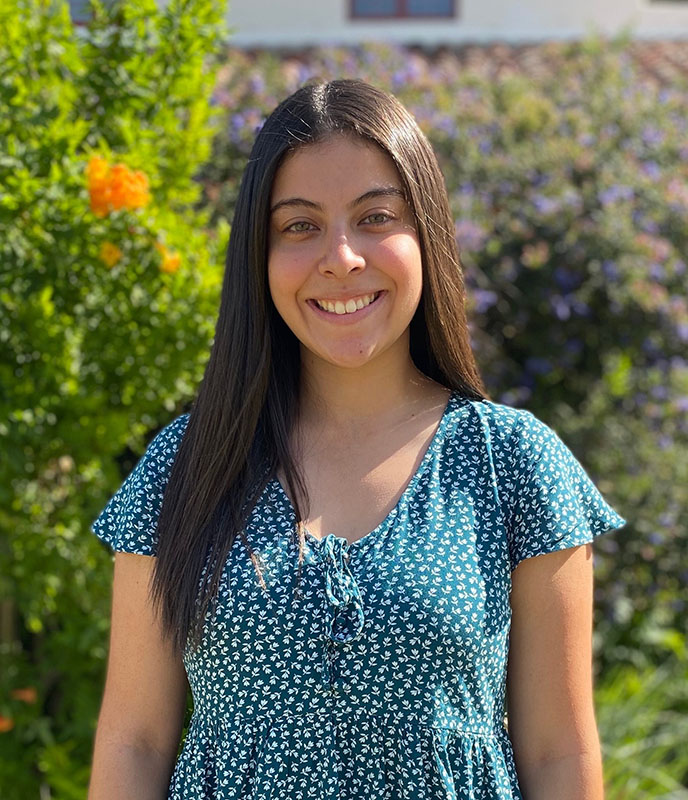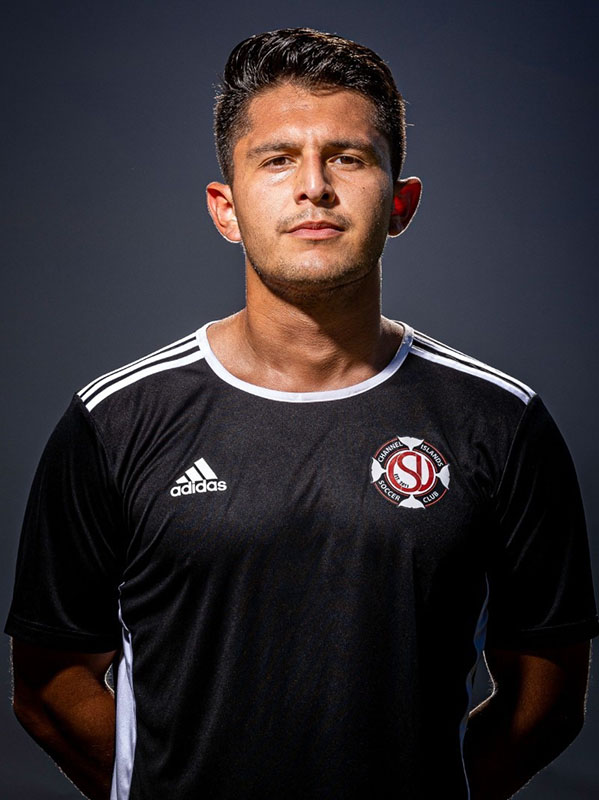 Sept. 3, 2020 — A summer peer mentorship program made possible by a $20,000 gift from the Simms/Mann Family Foundation was so successful, it is launching on a much bigger scale during the fall semester.
Sept. 3, 2020 — A summer peer mentorship program made possible by a $20,000 gift from the Simms/Mann Family Foundation was so successful, it is launching on a much bigger scale during the fall semester.
The Simms/Mann gift funded student scholarships and five peer mentors during the second summer session at CSU Channel Islands (CSUCI). Two of the peer mentors were embedded in two specific classes with the Guided Peer Support (GPS) program. The other three peer mentors worked with students in the CARES Summer Support Program, in which eligible students were able to attend the second session of summer school through funds provided by the federal Coronavirus Aid, Relief, and Economic Security (CARES) Act.
The program was so effective, that 18 faculty members are now working to include Guided Peer Support (GPS) mentors in 51 courses during the fall semester.
“We are so grateful to the Simms/Mann Family Foundation for the seed money that allowed us to pilot this program,” said Michelle Hasendonckx, Director of Student Academic Success & Equity Initiatives. “We were able to make improvements with student and professor feedback and we went from two professors and two courses to 18 professors and 51 courses!”
“I was inspired by the program’s mission to support learning and improve enrollment and retention rates for vulnerable students during the COVID-19 pandemic,” said Victoria Mann Simms, Ph.D., co-founder of the Simms/Mann Family Foundation. “Through this mentorship program, students are able to learn from peers how to navigate the university setting and online courses, and overcome challenges through dedication and hard work. We are pleased that this program will now be expanding to impact even more students.”
Psychology major Jocelyn Garcia, 20, was one of the two peer mentors in this summer’s version of the GPS, in which she was embedded in a public speaking class taught by Associate Professor of Communication and Program Chair Christina Smith, Ph.D. The other summer class with an embedded peer mentor was a class on equity and diversity taught by Assistant Professor of Education Tadashi Dozono, Ph.D.
As a peer mentor, Garcia would offer online workshops and drop-in online office hours to help any student in the class. Garcia is the first in her family to attend college, so she could draw on her own experience to help others with the same background.
“We would set up Zoom meetings where students could practice their speech and I was able to give them feedback, or they would go over an assignment with me before turning it in,” Garcia said. “I think peer mentorship is important because you can relate to the person. You aren’t as shy or maybe as uncomfortable asking questions because you are not afraid you’re going to be judged. If somebody looks like you, it’s like they probably understand what you may be going through.”
Garcia’s motivation to attend college came from watching her dad return home from working in the fields.
“It was hard seeing him come home every day, tired and sunburned,” said Garcia, who grew up in Santa Paula. “One of the things he always told me was ‘work hard with your mind, not your body.’”
Along with her work as a peer mentor, Garcia keeps up with her own studies and helps her mother, who has a disability. She is now in her junior year with plans to graduate in 2022.
 Biology major Bryant Cruz’s role as a peer mentor was a little different than Garcia’s. He and two other peer mentors were charged with making contact with and supporting students who might want to take summer classes in order to take one more step toward graduating on time, especially with the pandemic upending everybody’s lives.
Biology major Bryant Cruz’s role as a peer mentor was a little different than Garcia’s. He and two other peer mentors were charged with making contact with and supporting students who might want to take summer classes in order to take one more step toward graduating on time, especially with the pandemic upending everybody’s lives.
“Many of my mentees were talking about transition from in-person to online classes,” said Cruz, 22, of Oxnard. “We all had to adapt to a change of environment. They went from having a campus, which was almost like a sanctuary to learn, to having to self-discover what they could do at home.”
Transfer Student Success Activity Director Veronica Montoya said the objective for Cruz and his two fellow at-large peer mentors was to develop workshops to help mentees with study strategy and to create online study groups. Many students were concerned about the loss of their in-person study groups after the pandemic hit.
“Study groups require more intention when we’re doing it virtually,” Montoya said. “When we’re in person, you might run into a study partner in the bookstore or the dining hall. We had to figure out a way to help students still feel connected not only to the campus but to one another.”
Bryant held regular online study sessions throughout the second session of summer school and kept in contact with students who were struggling with whether to return to school after the pandemic hit.
“I definitely had students who were in doubt about continuing school,” he said. “At the end of the day, I was able to remind them of what their end goal is: to be able to finish and better be able to support their families. It’s investing in ourselves and our society.”
